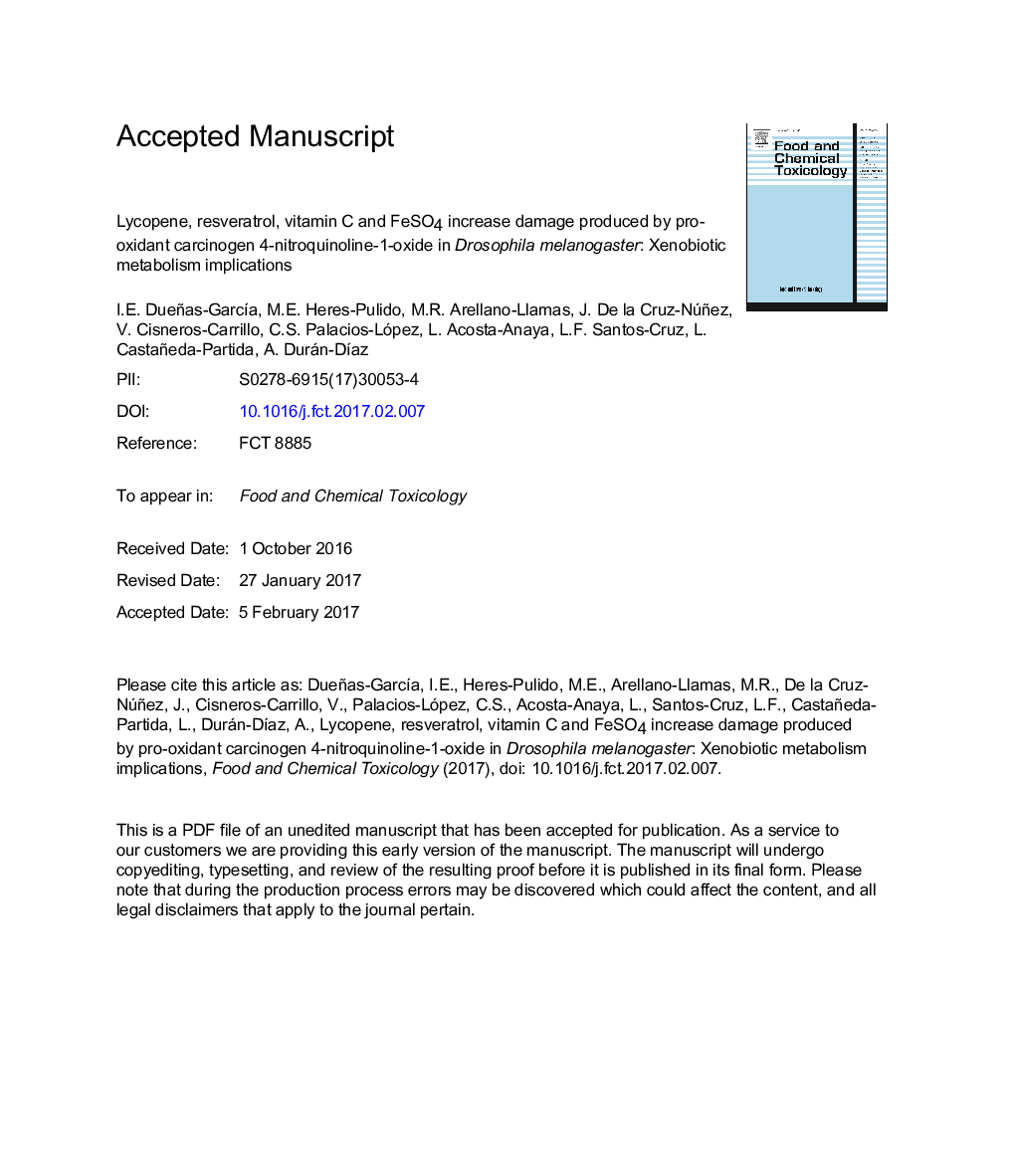| Article ID | Journal | Published Year | Pages | File Type |
|---|---|---|---|---|
| 5560236 | Food and Chemical Toxicology | 2017 | 48 Pages |
Abstract
4-nitroquinoline-1-oxide (4-NQO) is a pro-oxidant carcinogen bioactivated by xenobiotic metabolism (XM). We investigated if antioxidants lycopene [0.45, 0.9, 1.8 μM], resveratrol [11, 43, 172 μM], and vitamin C [5.6 mM] added or not with FeSO4 [0.06 mM], modulate the genotoxicity of 4-NQO [2 mM] with the Drosophila wing spot test standard (ST) and high bioactivation (HB) crosses, with inducible and high levels of cytochromes P450, respectively. The genotoxicity of 4-NQO was higher when dissolved in an ethanol - acetone mixture. The antioxidants did not protect against 4-NQO in any of both crosses. In the ST cross, resveratrol [11 μM], vitamin C and FeSO4 resulted in genotoxicity; the three antioxidants and FeSO4 increased the damage of 4-NQO. In the HB cross, none of the antioxidants, neither FeSO4, were genotoxic. Only resveratrol [172 μM] + 4-NQO increased the genotoxic activity in both crosses. We concluded that the effects of the antioxidants, FeSO4 and the modulation of 4-NQO were the result of the difference of Cyp450s levels, between the ST and HB crosses. We propose that the basal levels of the XM's enzymes in the ST cross interacted with a putative pro-oxidant activity of the compounds added to the pro-oxidant effects of 4-NQO.
Related Topics
Life Sciences
Agricultural and Biological Sciences
Food Science
Authors
I.E. Dueñas-GarcÃa, M.E. Heres-Pulido, M.R. Arellano-Llamas, J. De la Cruz-Núñez, V. Cisneros-Carrillo, C.S. Palacios-López, L. Acosta-Anaya, L.F. Santos-Cruz, L. Castañeda-Partida, A. Durán-DÃaz,
